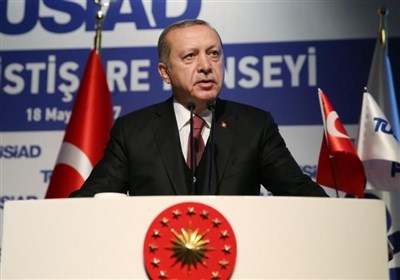Revised Economic Forecast From Bank Of Japan: Trade War's Negative Effects

Table of Contents
Dampened Export Growth Due to Trade Tensions
Exports form the backbone of the Japanese economy, contributing significantly to its GDP. The ongoing trade war, however, is severely undermining this crucial sector. The imposition of tariffs and the resulting uncertainty have created a ripple effect, negatively impacting key export-oriented industries.
The trade war's impact manifests in several ways:
- Decreased demand from major trading partners: The US, China, and the EU, key markets for Japanese goods, are experiencing slower growth, directly impacting demand for Japanese automobiles, electronics, and other manufactured goods. This reduced demand translates to lower export volumes and revenue for Japanese companies.
- Increased tariffs leading to higher prices and reduced competitiveness: Tariffs imposed by trading partners increase the price of Japanese goods in those markets, making them less competitive compared to domestically produced goods or those from other countries not subject to the same tariffs. This erodes market share and hampers export growth.
- Supply chain disruptions affecting production and delivery timelines: The trade war has disrupted global supply chains, delaying production and delivery of goods. This unpredictability adds to the uncertainty and makes it difficult for Japanese businesses to plan effectively and meet their export commitments.
- Weakening global economic growth impacting overall export demand: The trade war is not isolated to specific bilateral relationships; it contributes to a general slowing of global economic growth, further reducing overall demand for Japanese exports.
Impact on Business Investment and Corporate Sentiment
The uncertainty stemming from the trade war has significantly impacted Japanese businesses' investment decisions. Decreased export demand and rising costs directly affect corporate profitability, leading to a more cautious approach towards future investment plans.
This translates into several tangible consequences:
- Postponement or cancellation of capital expenditure projects: Businesses are hesitant to commit to large-scale investment projects due to the unpredictability of the future economic climate. This reluctance translates into a slowdown in capital investment, a crucial driver of economic growth.
- Reduced hiring and potential job losses in export-oriented industries: With reduced export orders and diminished profitability, companies in export-oriented industries are less likely to hire new employees and may even resort to layoffs, leading to job losses and decreased consumer spending.
- Negative impact on consumer confidence due to uncertainty: The overall uncertainty surrounding the trade war negatively impacts consumer confidence. Consumers are likely to postpone major purchases, reducing overall consumer spending and hindering economic growth.
- Decreased profitability leading to lower stock prices: The decline in export revenues and increased production costs translate into lower corporate profitability, leading to a decline in stock prices and reduced investor confidence in the Japanese market.
Weakening Yen and its Double-Edged Sword Effect
The weakening Yen, a consequence of the trade war and global economic uncertainty, presents a double-edged sword for the Japanese economy. While it offers a short-term boost to export competitiveness by making Japanese goods cheaper for foreign buyers, it simultaneously increases import costs.
- Short-term boost to export competitiveness but increased import costs: A weaker Yen might initially increase the competitiveness of Japanese exports in international markets. However, this advantage is offset by higher import costs for raw materials and other essential goods, impacting production costs and potentially leading to inflation.
- Risk of inflation if import costs rise significantly: If the weakening Yen leads to significantly higher import costs, it could fuel inflation, eroding consumer purchasing power and potentially negating the benefits of increased export competitiveness.
- Uncertainty regarding the future direction of the Yen exchange rate: The fluctuating Yen exchange rate adds another layer of uncertainty for businesses, making it challenging to plan long-term strategies and investments.
Revised GDP Growth Projections by the BOJ
The BOJ's revised GDP growth forecast reflects the negative impact of the trade war. While previous projections anticipated a certain level of growth, the revised forecast shows a considerable downward revision. This reflects the combined impact of dampened exports, reduced investment, and increased uncertainty.
- Specific numbers for GDP growth (previous and revised): [Insert specific numbers from the BOJ's report here. This section requires up-to-date data from the BOJ's official publications.]
- Analysis of the impact on different economic sectors: The downward revision will not impact all sectors equally; export-oriented industries will likely experience a more significant contraction than those focused on domestic consumption.
- Time horizon of the forecast (short-term, medium-term): The BOJ's forecast will likely cover both short-term and medium-term projections, offering insights into the anticipated recovery timeline.
BOJ's Policy Response to the Revised Forecast
In response to the revised economic forecast, the BOJ is likely to implement further monetary policy adjustments to mitigate the negative effects of the trade war. However, the effectiveness of these measures is limited in addressing structural economic issues.
- Potential for further monetary easing (e.g., negative interest rates, quantitative easing): The BOJ might consider further monetary easing measures to stimulate economic activity, but the effectiveness of these measures is debated, especially considering the current low interest rate environment.
- Limitations of monetary policy in addressing structural economic issues: Monetary policy can address short-term fluctuations, but it is less effective in dealing with fundamental structural issues arising from the trade war, such as supply chain disruptions and decreased global demand.
- Government fiscal policy coordination and its role: Effective government fiscal policy coordination is essential to complement monetary policy, potentially through targeted investment programs in infrastructure or support for struggling industries.
Conclusion
The Bank of Japan's revised economic forecast underscores the profound negative impact of the ongoing trade war on the Japanese economy. Factors such as dampened export growth, weakened business investment, and a volatile Yen contribute to a less optimistic outlook. While the BOJ may implement further monetary easing, resolving the trade conflict remains paramount for a robust economic recovery. Staying updated on the latest Bank of Japan Economic Forecast and its revisions is crucial for making informed investment and business decisions. Monitor the situation closely and adjust your strategies accordingly to navigate this challenging economic climate.

Featured Posts
-
 Mental Health In Ghana Examining The Critical Psychiatrist Deficit
May 02, 2025
Mental Health In Ghana Examining The Critical Psychiatrist Deficit
May 02, 2025 -
 Sdr Azad Kshmyr Brtanwy Arkan Parlymnt Ky Kshmyr Ke Msyle Ke Hl Ky Hmayt
May 02, 2025
Sdr Azad Kshmyr Brtanwy Arkan Parlymnt Ky Kshmyr Ke Msyle Ke Hl Ky Hmayt
May 02, 2025 -
 The Impact Of Effective Middle Management On Employee Morale And Productivity
May 02, 2025
The Impact Of Effective Middle Management On Employee Morale And Productivity
May 02, 2025 -
 Tongas Stunning Victory How They Dashed Sis Hopes
May 02, 2025
Tongas Stunning Victory How They Dashed Sis Hopes
May 02, 2025 -
 Actress Priscilla Pointer Dead At 100 A Career In Review
May 02, 2025
Actress Priscilla Pointer Dead At 100 A Career In Review
May 02, 2025
